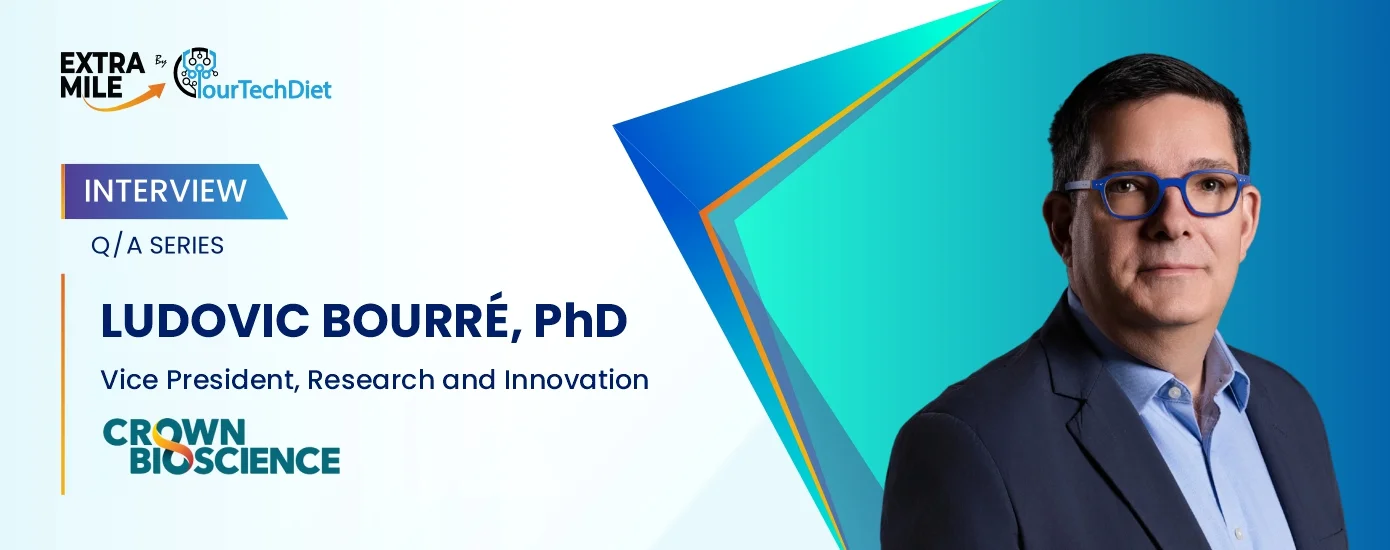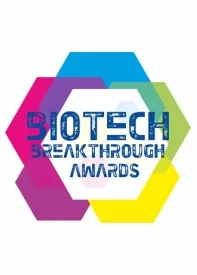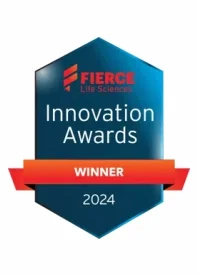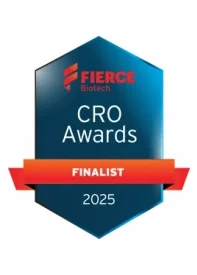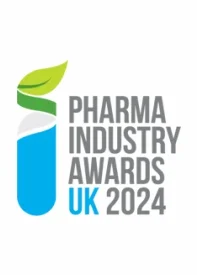ExtraMile by YourTechDiet is an extensive interview series where we connect you with pioneers from diverse sectors who are reshaping the future. Join us as we unlock the newest innovations and technological trends with top voices from the industry.
In this session, Ludovic Bourré, PhD, the Vice President, Research and Innovation of Crown Bioscience, joined us to highlight the progression of immunotherapy development and oncology research. Crown Bioscience, as a JSR Life Sciences company, advances drug discovery alongside accelerating oncology and immunotherapy development. The organization collaborates with biotech and pharmaceutical companies to innovate and tailor solutions across clinical trial support, preclinical research, and translational platforms.
With expertise in biotech and preclinical development of oncology drugs and vaccines, our guest, Ludovic, leads the Research and Innovation team at Crown Bioscience. He has contributed remarkably to the field of non-clinical evaluations for different organs and non-clinical pharmacology.
Let us explore Ludovic’s experience in pharmacology next to understanding the process of immunotherapy development, oncology research, advancements in the HealthTech sector, and more.
Hello, Ludovic! We’re glad you could join us today!
1. You have been contributing to pharmacology practices for over 15 years now. How have different experiences shaped your career over the years?
Ludovic. Over the past 15 years, my career has been shaped by a diverse set of experiences across academic research, biotech, and contract research organizations. This broad exposure has given me a comprehensive understanding of translational pharmacology and the unique challenges at each stage of drug development. My hands-on experience in both in vivo and in vitro pharmacology has been instrumental in bridging the gap between early discovery and preclinical development. Additionally, managing global projects from discovery through to Phase I trials has deepened my insight into the complexities of drug development, enabling me to better anticipate and address challenges across multidisciplinary teams.
2. You have been associated with Crown Bioscience for more than eight years. Which key projects have you worked on so far that have brought significant transformations?
Ludovic. During my time at Crown Bioscience, I’ve had the opportunity to lead and contribute to several transformative initiatives. One of the most impactful has been the expansion of our patient-derived xenograft (PDX) platform, which significantly enhanced the clinical relevance of our preclinical models. I also played a key role in the development of our organoid platform, enabling high-throughput drug screening and broadening our translational in vitro capabilities to include platforms like EVPT and BMN. Additionally, I supported the growth of our clinical biospecimen services for translational research and was involved in achieving CAP accreditation—an important milestone that reinforced our commitment to high-quality clinical sample handling and operational excellence.
3. Crown Bioscience has recently attained the Green Lab Sustainability Certification. What does this achievement mean to the company and its partners?
Ludovic. Achieving the highest level of My Green Lab Certification at our Netherlands facility reinforces our commitment to environmental responsibility. As the gold standard for sustainable lab practices, the certification validates our efforts to embed sustainability across operations—from energy and water use to waste management and supplier selection.
For Crown Bioscience, this achievement is more than a recognition it’s a commitment to embedding eco-conscious practices across our global footprint.
For our partners, it demonstrates that oncology research can be conducted with a strong focus on environmental responsibility. It also underscores our leadership in advancing sustainable practices within the life sciences industry, aligning with our values of innovation, quality, and sustainability.
4. What are the key stages of the immunotherapy development process? Specify the major considerations in this regard.
Ludovic. The development of immunotherapies involves several critical stages. It begins with target discovery and validation, where specific antigens or immune pathways are identified for therapeutic intervention. This is followed by translational research, which includes robust preclinical modeling using in vitro and ex vivo systems—such as co-culture with cells or organoids and platforms like EVPT—as well as in vivo models including syngeneic, humanized, and CDX/PDX models. These help evaluate immune engagement, efficacy, and safety.
Biomarker identification is another key stage, crucial for patient stratification and predicting therapeutic response. Finally, clinical trial design plays a pivotal role, often incorporating adaptive trial models and immune-specific endpoints to address the unique dynamics of immunotherapy.
Major considerations throughout this process include selecting appropriate models to ensure immune relevance, managing the balance between efficacy and immune-related adverse events, and overcoming challenges in identifying reliable biomarkers for predicting response, toxicity, and resistance. Additionally, trial design must account for the complexity and heterogeneity of both immunotherapy agents and patient populations.
5. Crown Bioscience launched 3D Bone Marrow Niche In Vitro Models last month. How does this breakthrough contribute to hematological cancer research?
Ludovic. The launch of Crown Bioscience’s 3D Bone Marrow Niche (BMN) in vitro models marks a significant advancement in hematological cancer research. These models more accurately replicate the physiological bone marrow environment compared to traditional 2D cultures, enhancing the relevance of preclinical data. They enable more predictive drug screening, particularly for complex diseases such as acute myeloid leukemia (AML) and multiple myeloma.
Importantly, the platform allows for the investigation of drug resistance mechanisms and microenvironmental interactions, which are critical for understanding treatment response. It also supports the development of co-culture systems for immune-oncology applications within hematological settings. By reducing reliance on in vivo models, this innovation aligns with ethical research principles and recent FDA/NIH guidance promoting New Approach Methodologies (NAMs).
6. Data is more crucial than anything else for oncology research. For this purpose, which strategies are highly effective for data collection and assessment?
Ludovic. Effective data collection and assessment in oncology research rely on a combination of advanced technologies and standardized practices. Leveraging high-throughput platforms—including those focused on efficacy, genomics, proteomics, and imaging—enables the generation of large, multi-dimensional datasets. To ensure reproducibility and comparability, implementing standardized data pipelines is essential.
The integration of AI and machine learning allows researchers to uncover meaningful insights and predictive patterns within complex datasets, accelerating translational outcomes. Additionally, comprehensive metadata collection and annotation enhances the utility of the data for future analysis, collaboration, and regulatory compliance. Together, these strategies ensure data is not only rich and robust, but also actionable and aligned with evolving research needs.
7. What are the prevailing hurdles of oncology research? How does innovation help overcome the same? Can you share any use cases for better understanding?
Ludovic. Oncology research continues to face several major challenges, including tumor heterogeneity, limited understanding of the tumor microenvironment (TME), a lack of predictive biomarkers, and resistance to therapy. However, innovation is playing a crucial role in addressing these hurdles.
To overcome tumor heterogeneity and the limitations of traditional models, innovative platforms such as patient-derived organoids (PDO/PDXO) and PDX models offer more clinically relevant systems. These models better reflect patient variability and treatment response, enabling more accurate preclinical evaluation.
In tackling the complexity of the TME, technologies such as spatial transcriptomics, multiplex imaging, and 3D co-culture systems provide deeper insight into cellular interactions. For example, Crown Bioscience’s 3D Bone Marrow Niche model mimics the TME of hematologic malignancies, enhancing the prediction of drug efficacy and resistance mechanisms.
The lack of reliable biomarkers for patient stratification is another key obstacle. Crown’s integrated approach—combining multi-omics, clinical sample analysis, and advanced in vitro/in vivo models like organoids and PDX—helps identify relevant biomarkers to guide therapy.
Finally, resistance to therapy, whether intrinsic or acquired, can be addressed using longitudinal patient-derived models, molecular profiling, and combination treatment strategies. These tools help uncover resistance mechanisms and support the development of more effective, personalized treatment approaches.
These innovations not only drive scientific discovery but also help bridge the translational gap, ultimately improving outcomes for patients.
8. The HealthTech industry is progressing swiftly with new innovations entering the domain every day. Which tech advancements do you think will be highly beneficial for healthcare needs in the future?
Ludovic. Several emerging technologies hold significant promise for the future of healthcare. AI-driven biomarker discovery is revolutionizing our ability to identify predictive and prognostic indicators, enabling more tailored treatment strategies. Organ-on-a-chip platforms offer highly physiologically relevant models for drug testing, reducing reliance on animal studies while improving translational accuracy.
Advancements in spatial omics are providing unprecedented insights into tissue architecture and cell-to-cell interactions, deepening our understanding of disease mechanisms. Meanwhile, digital twin technologies—which create virtual replicas of individual patients—are paving the way for personalized treatment simulations and optimized clinical decision-making.
Collectively, these innovations will drive more precise, predictive, and personalized healthcare, transforming both clinical care and drug development in the years to come.
Check Out Our Other Informative Interviews:

